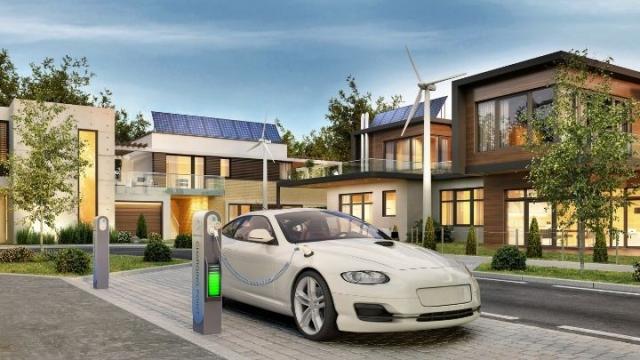So we’re barely out of the gate yet with electric cars, and we’re already starting to see researchers speculate weird new ideas with them — like that EV battery power could help sustain the power grid.
The University of Queensland has launched an international trial to see if such a thing is possible, feasible and implementable internationally. It’s partially funded by iMOVE, with the University of Queensland partnering with Teslascope to find willing trial participants.
“This provides a unique opportunity to leverage this spare energy capacity to absorb renewable energy generated in the middle of the day and overnight, and potentially even export energy to power homes and support the grid in the future using vehicle-to-grid chargers,” says Dr. Jake Whitehead, an E-Research mobility fellow at UQ.
Dr. Whitehead noted that while longer range electric cars are entering the market, often surpassing the 400km distance limit, most owners aren’t travelling more than 50km every day. This means that there’s opportunity in tapping into unused EV battery power.
“We have a unique opportunity through this project to better understand EV driving and charging behaviour in different markets, and what are the opportunities to use EVs to provide energy services and generate extra income for owners in the future,” he added.
The idea of electric vehicles providing services other than that of a replacement for a petrol motor car is certainly a welcome thought. Internationally, relying less on coal and power grids powered by fossil fuels could help us meet climate targets.
It’s also a bit sci-fi for now. Right now it’s hard to imagine how electric vehicles, which have their own battery capacity issues, could supplement power grids, let alone provide power to the home.
That being said, we can rely on EV battery power technology improving over time — so this tech could be a welcome innovation. It definitely has an environmental argument.
“By leveraging EV battery spare capacity and using smart charging technology, excess solar could be absorbed by vehicles parked during the day, and potentially discharged to support the grid during the evening using vehicle-to-grid (V2G) infrastructure,” says Ian Christensen, the managing director of iMOVE.
“For smart charging infrastructure to deliver these benefits, EV uptake must be significantly increased, and importantly, EV owners must be willing to use their vehicles as ‘batteries-on-wheels’,” he added.
He’s absolutely not wrong — with those batteries not being used for a significant chunk of the day (and for when they are, not for long) those batteries pose a serious opportunity for cutting down on fossil fuels and reusing your already-owned tech. After all, the best way to cut down on waste is to create less of it, adjust your lifestyle and use what you already own.
The UQ study intends to research up to 500 Tesla owners, who can sign up here. In exchange for accessing the Tesla vehicle data of users, participants will be offered a 12-month free trial of Teslascope. The data will be kept confidential, and will investigate EV battery power consumption.
This trial is available to Tesla owners in Australia, the United States, Canada, Norway, Sweden, Germany and the UK.
We’ll keep you in the loop on the findings of this study.
